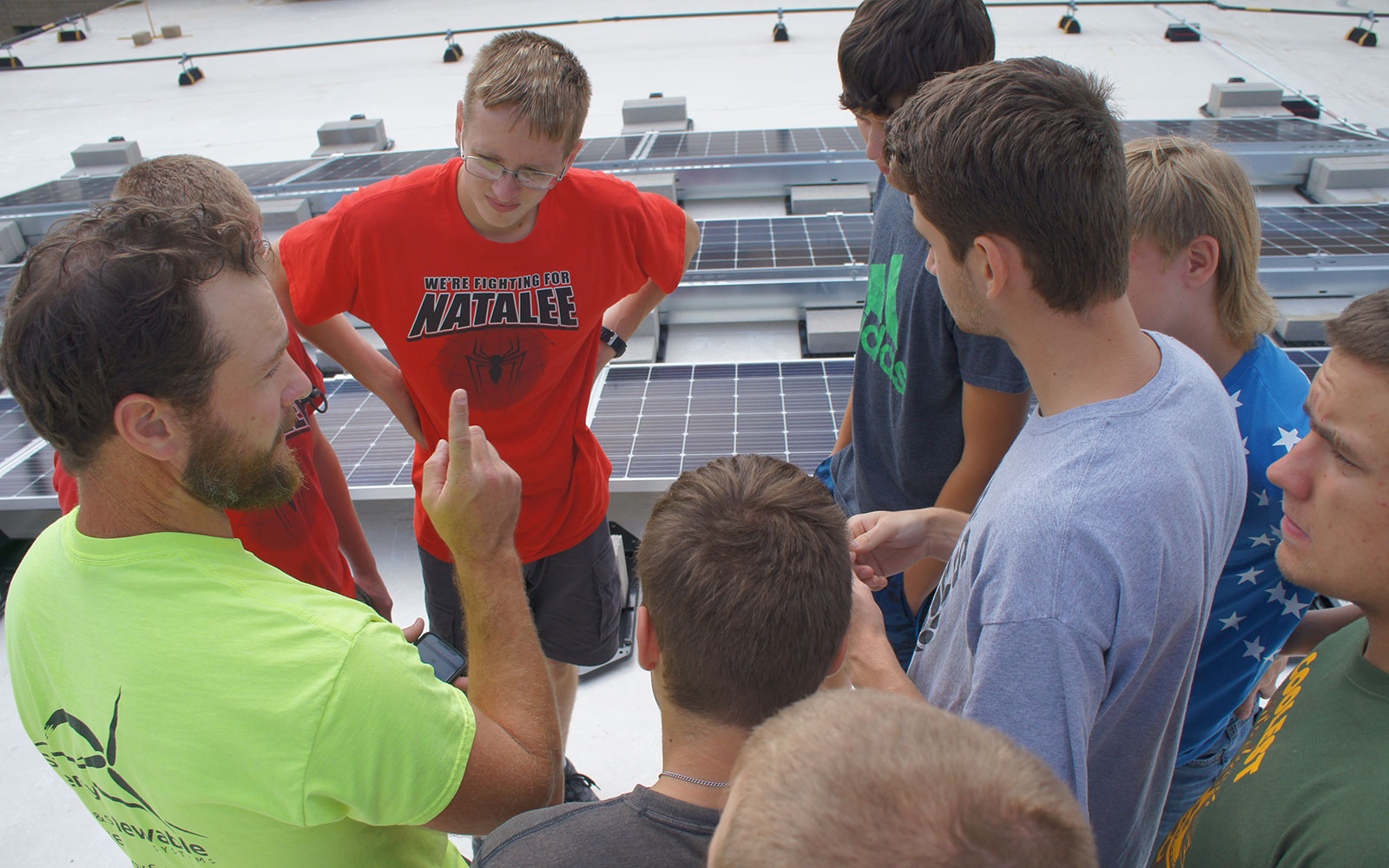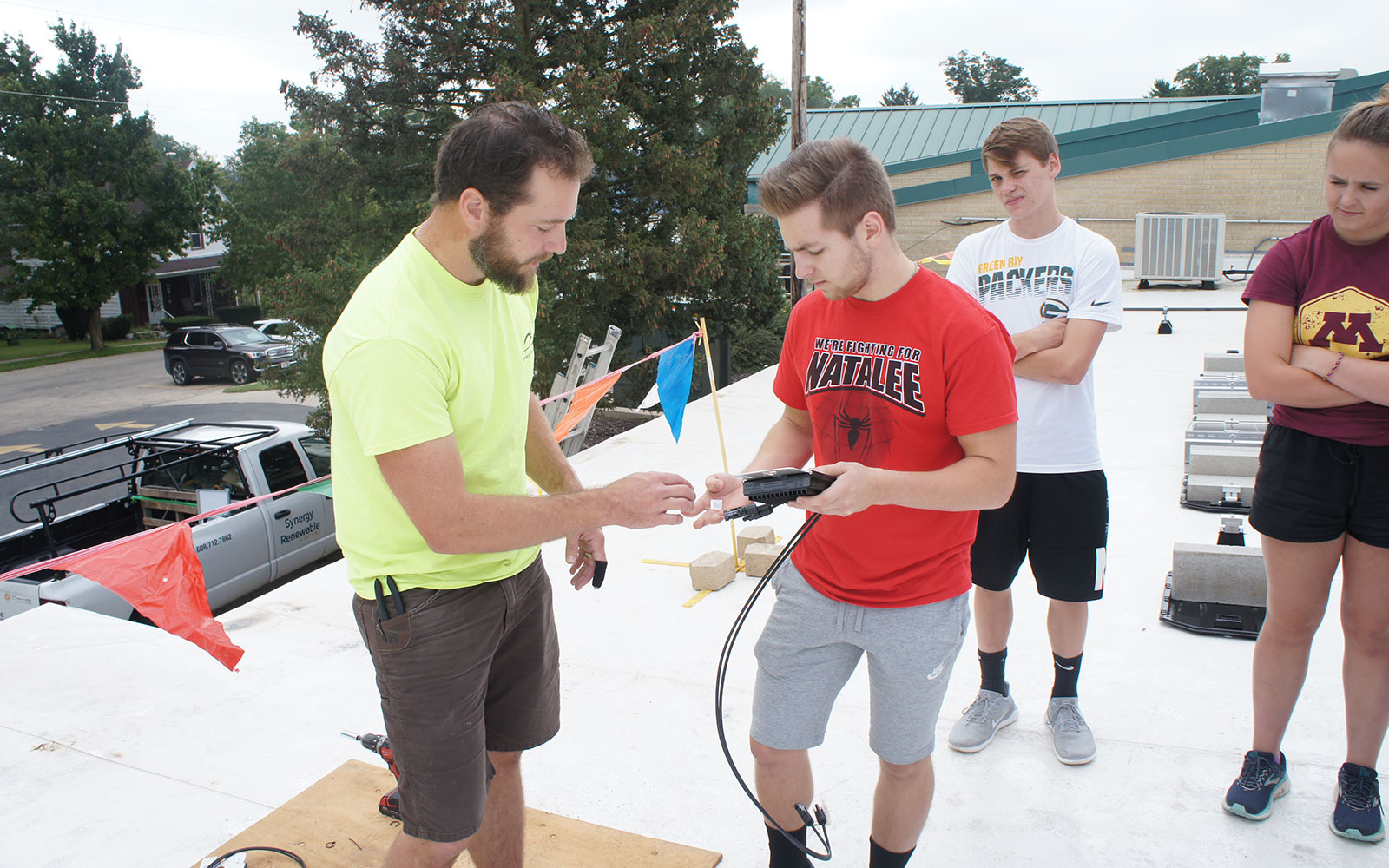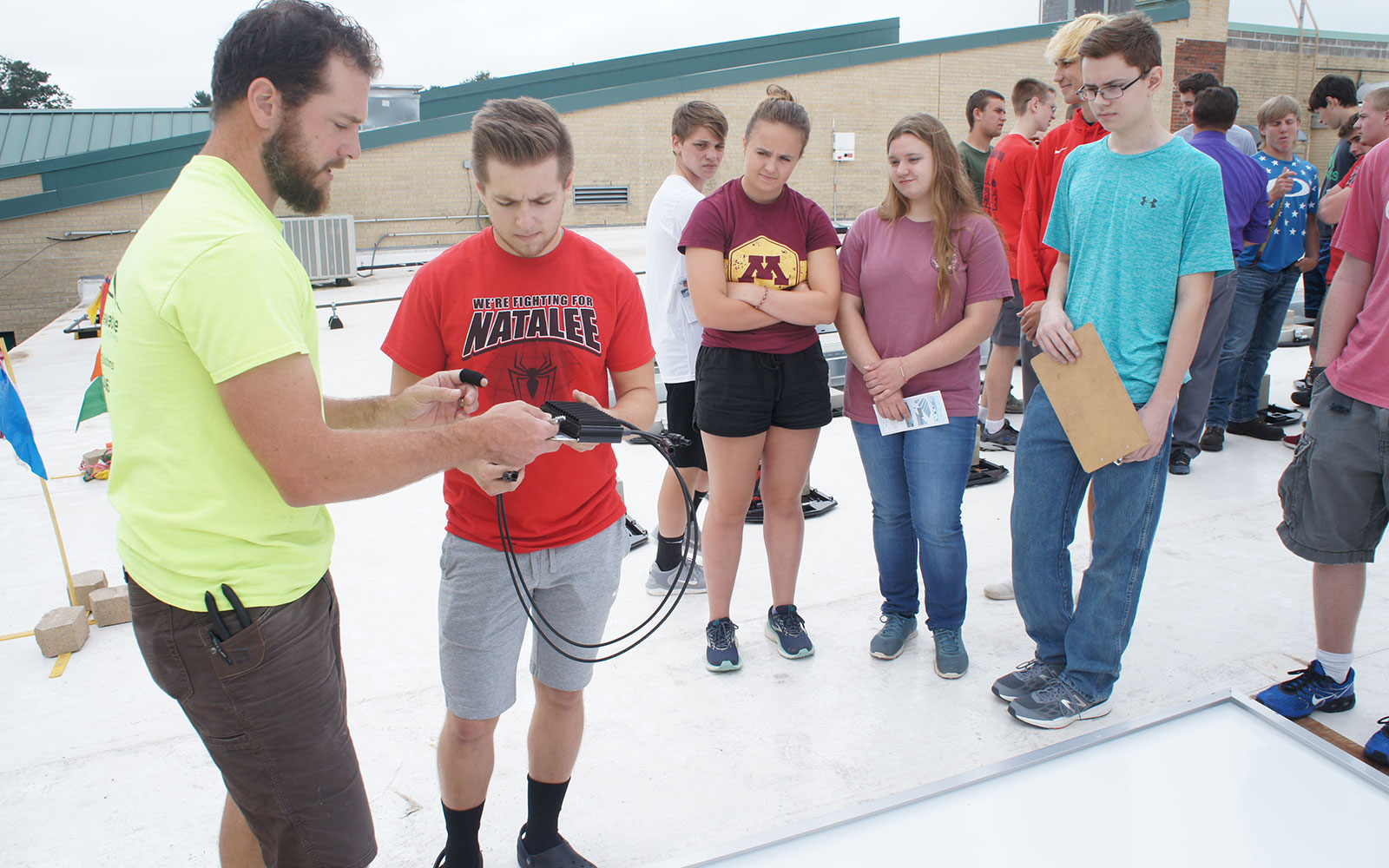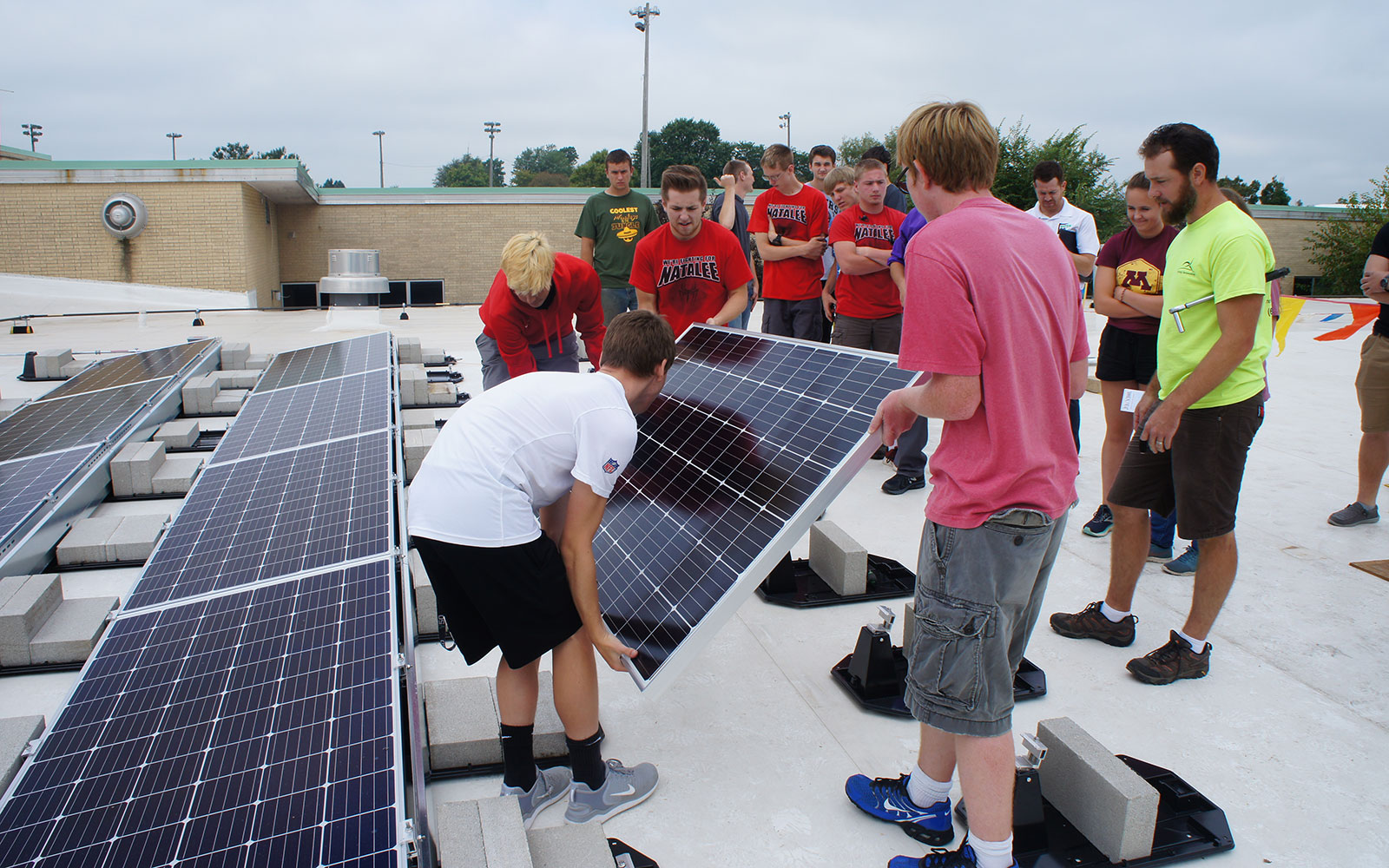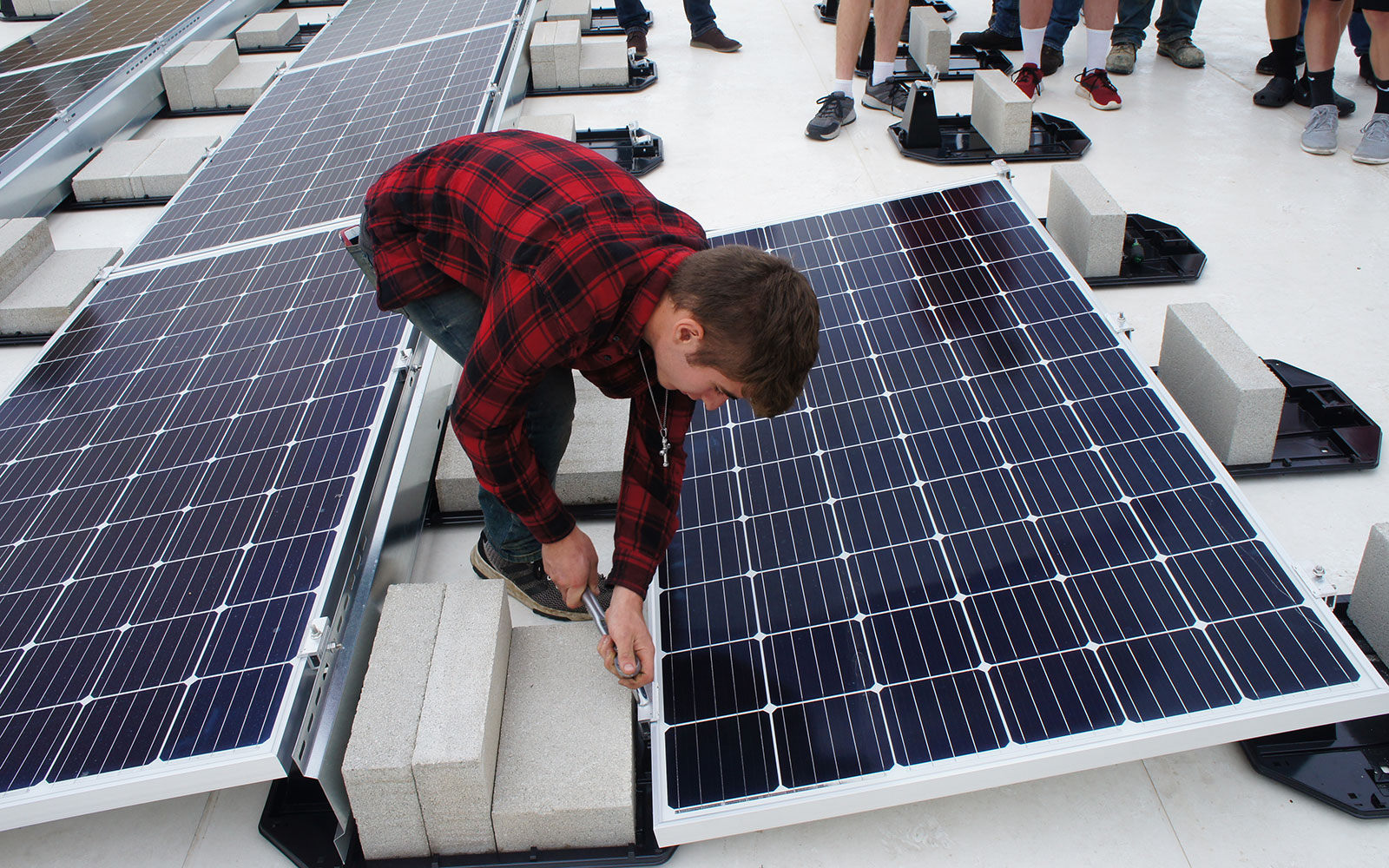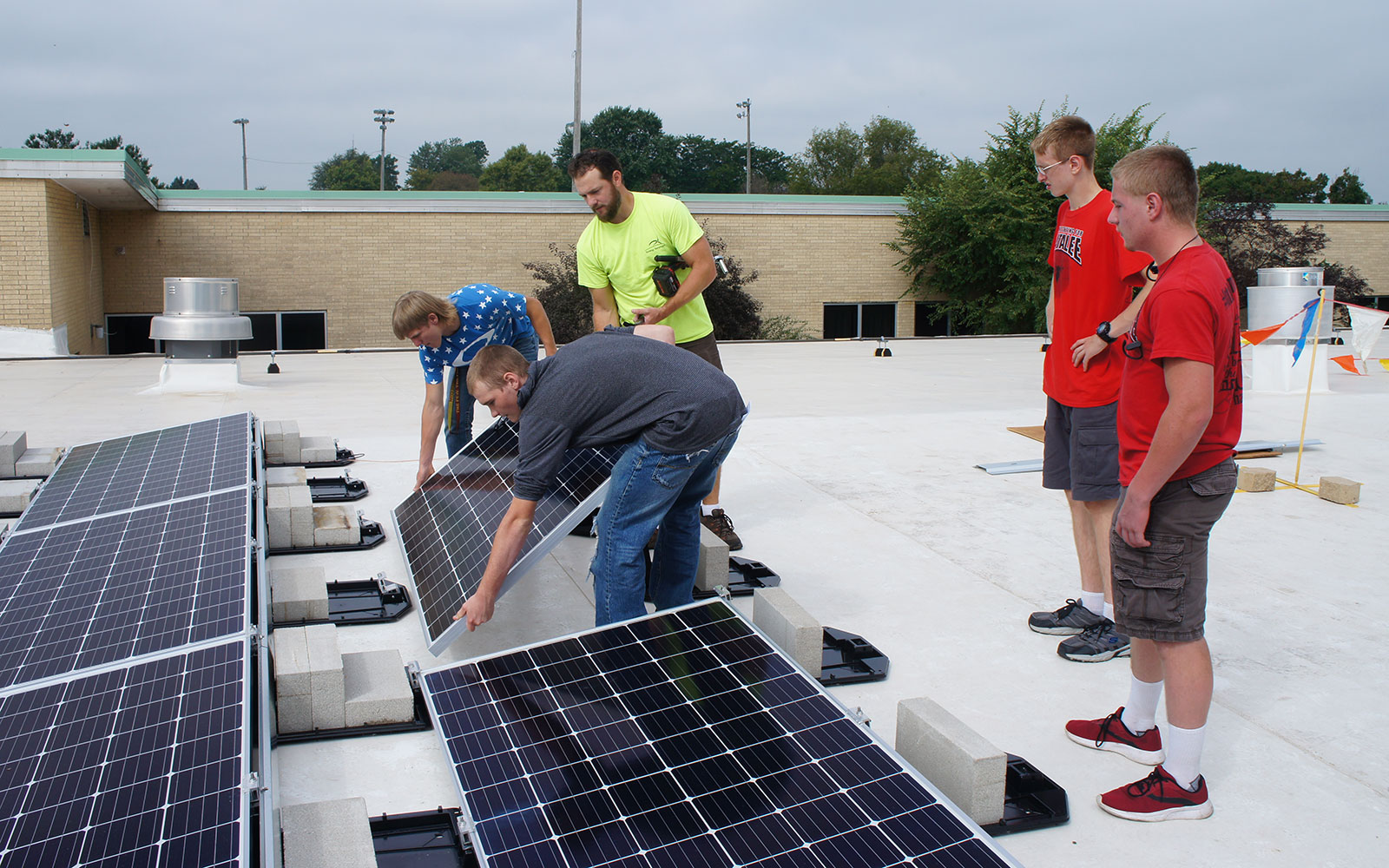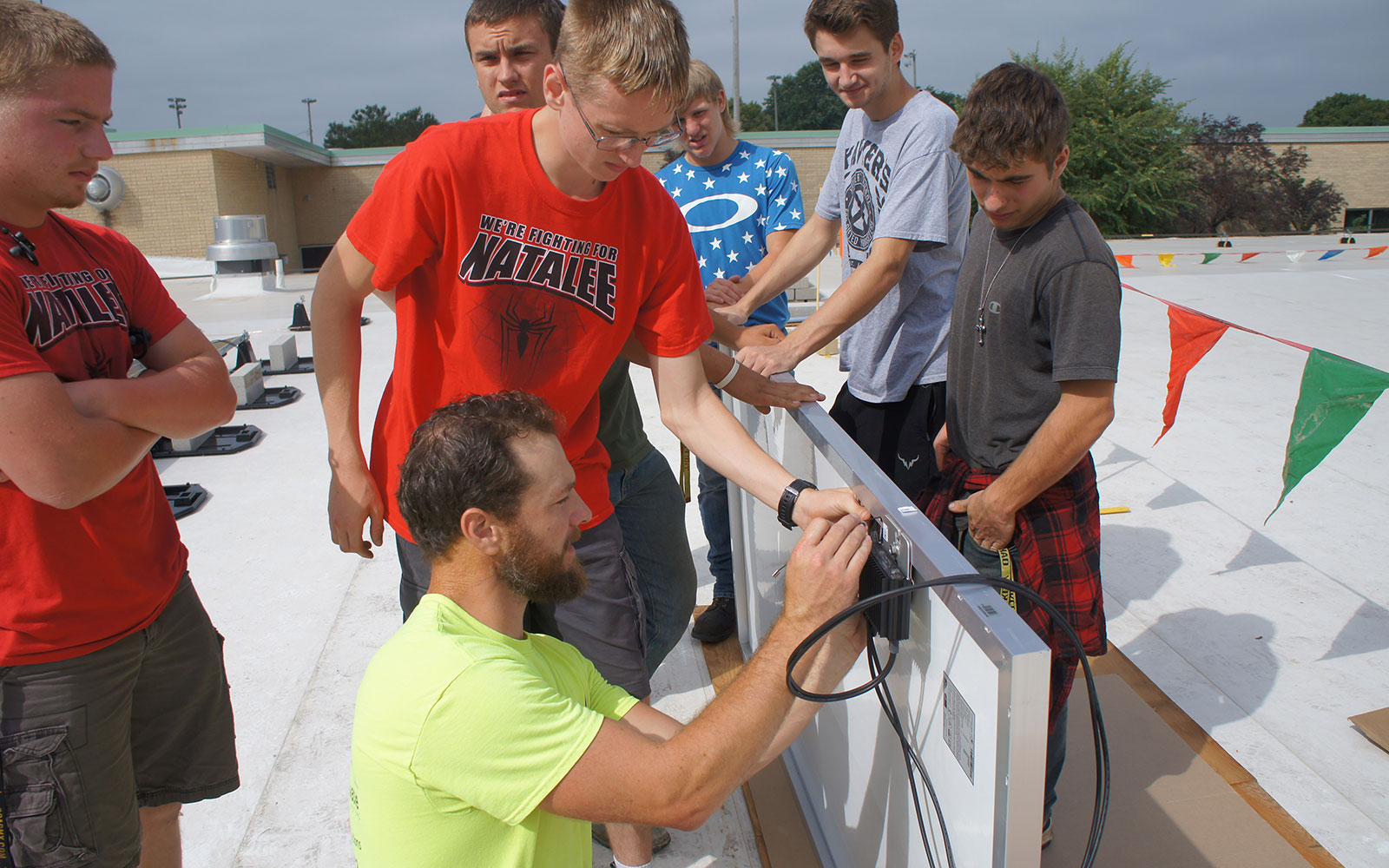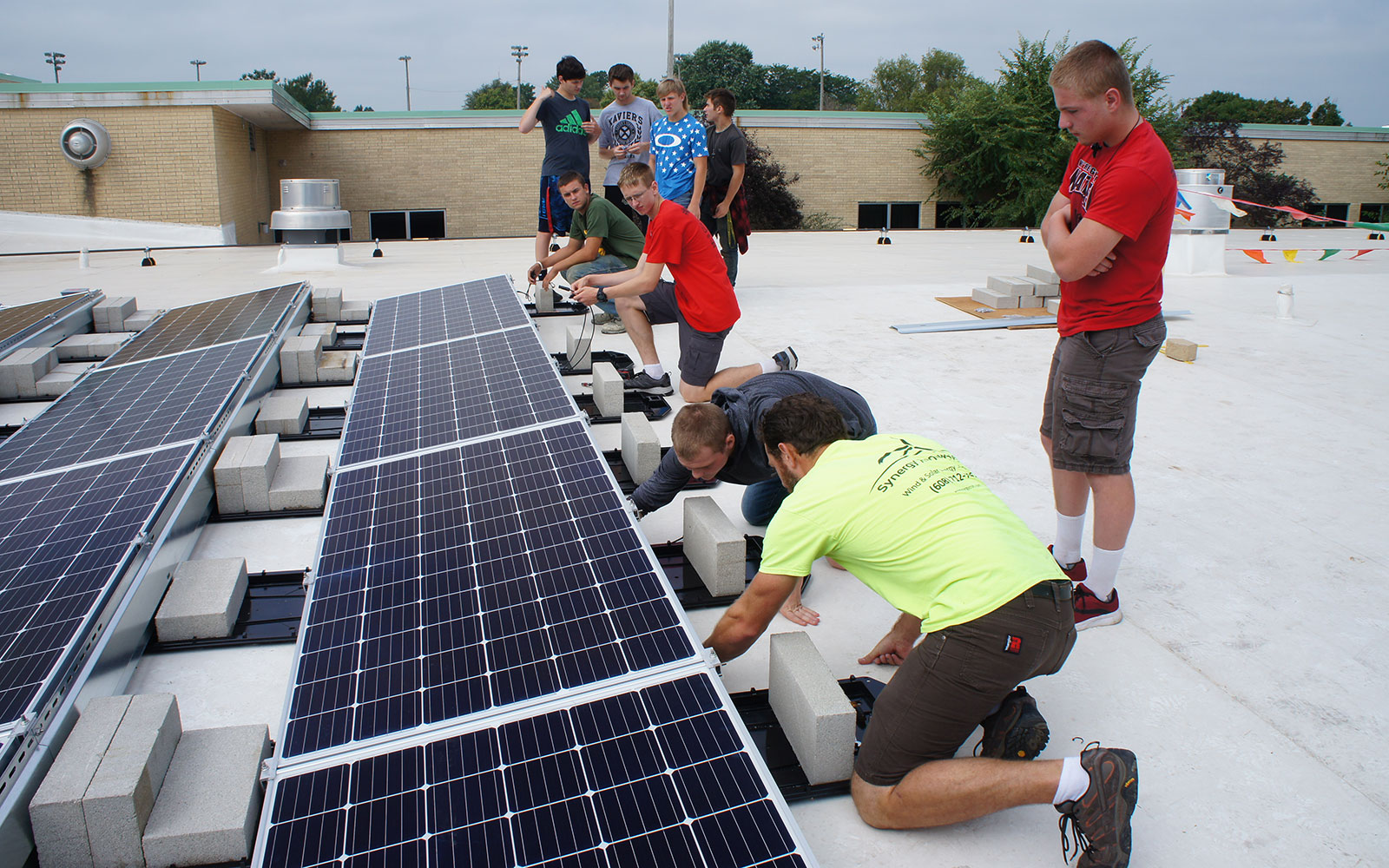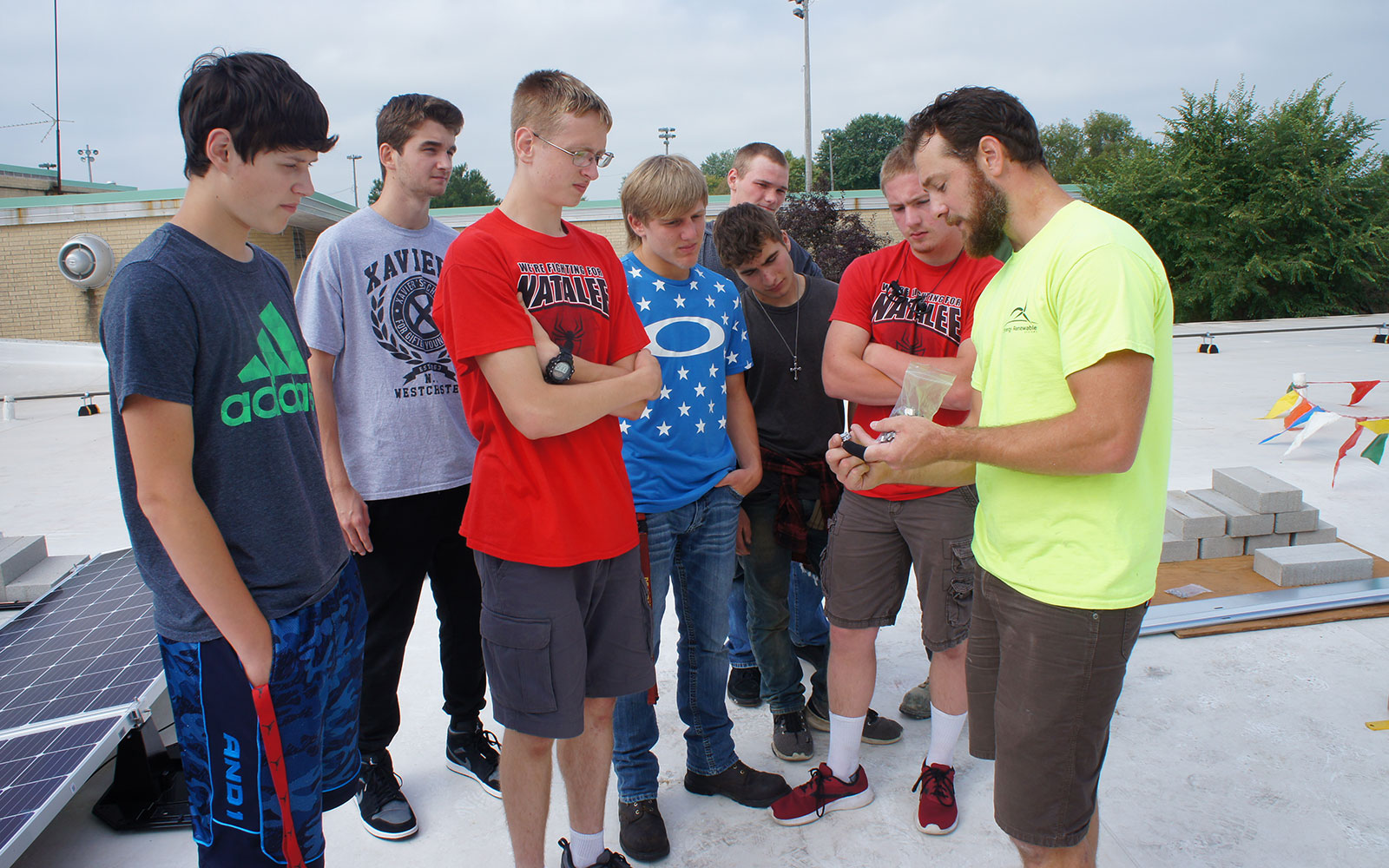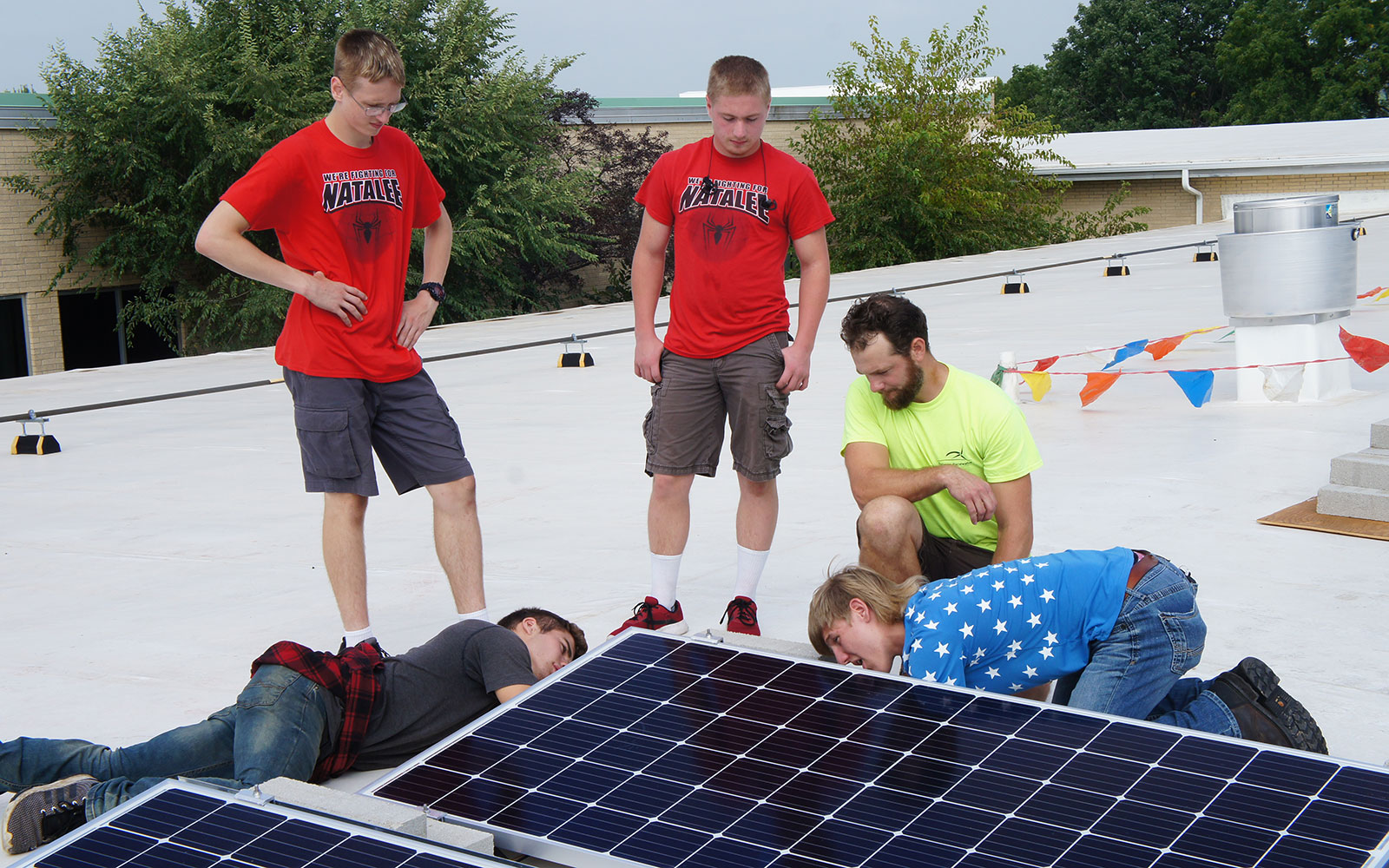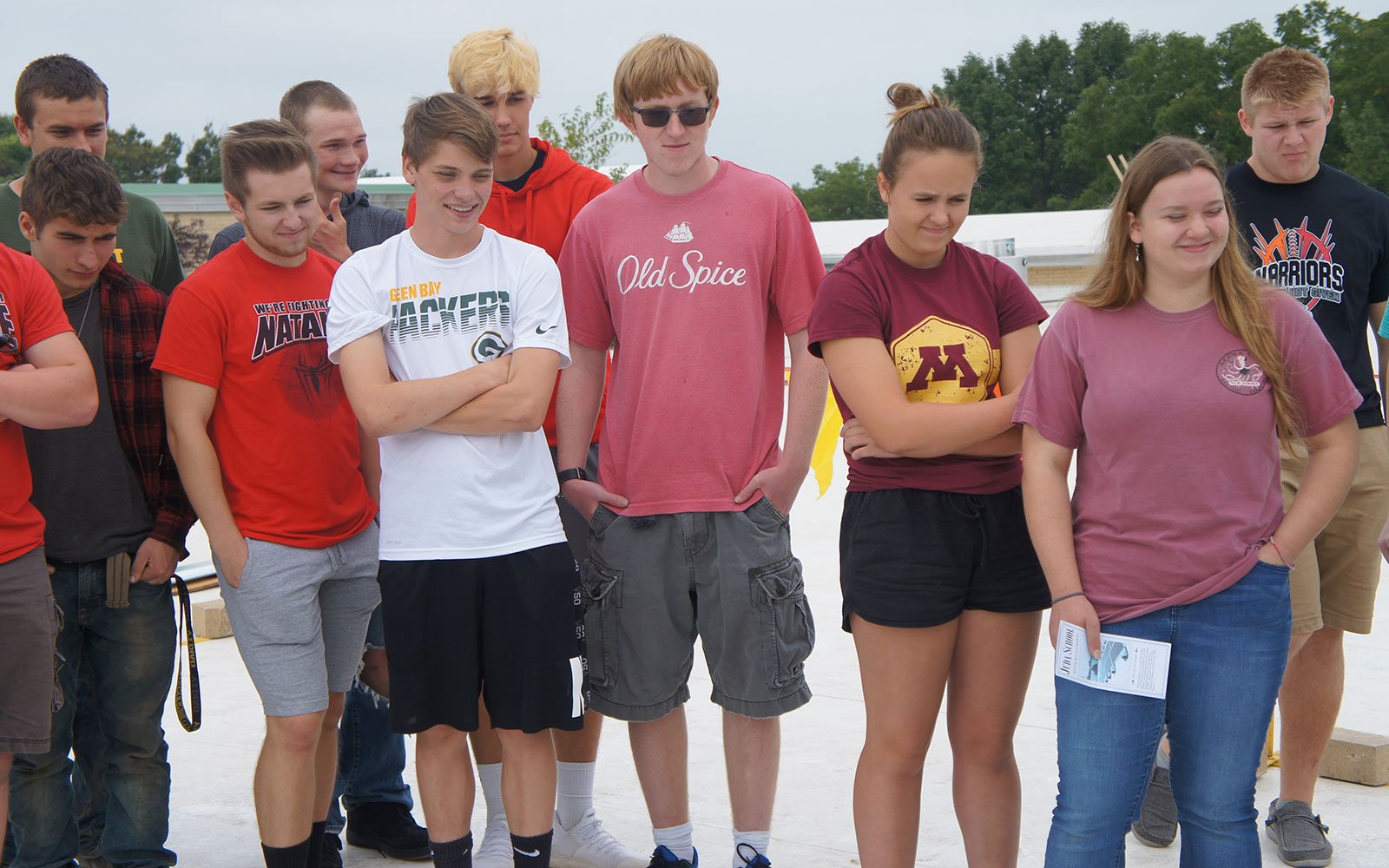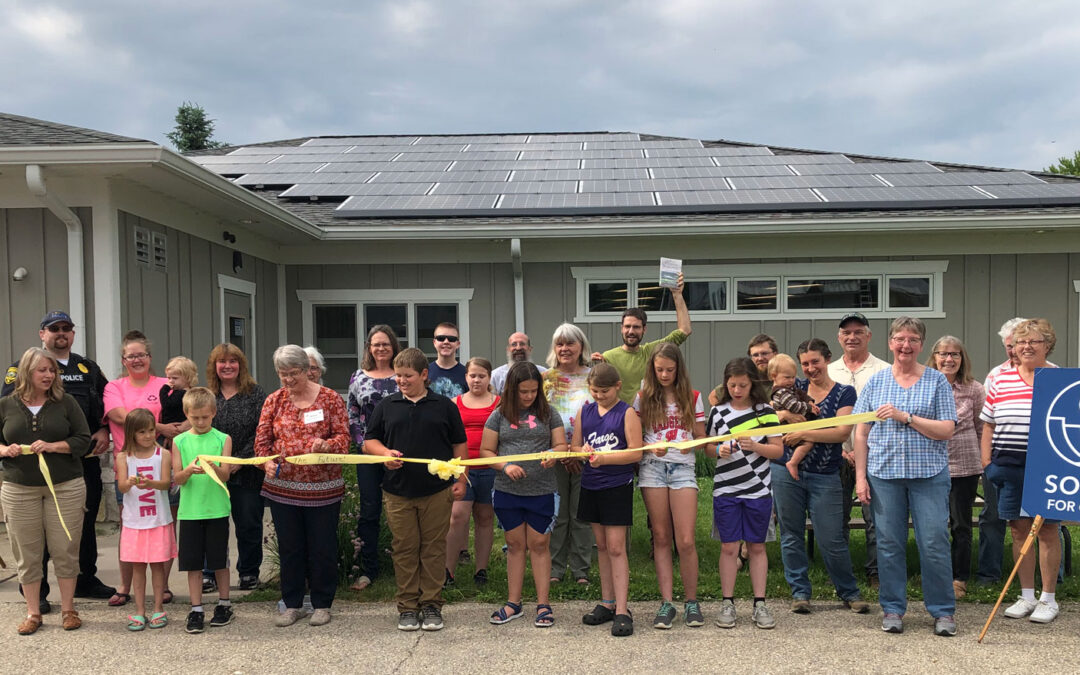
by Sam Dunaiski | Jun 8, 2022 | Community, Solar, Solar for Good
MADISON, WI – The Solar for Good grant program has awarded over $450,000 in grants and solar panel donations to Wisconsin nonprofit organizations. Thirty-five nonprofits will install over 2,200 kilowatts of solar electricity, leading to more than $6 million in renewable energy investments in Wisconsin.
The following organizations have been offered Spring 2022 Solar for Good grants to install new solar energy systems:
Agrace HospiceCare – health care, Janesville
Albany Lions Club – community services, Albany
Aldo Leopold Foundation – conservation, Baraboo
Antigo Public Library – community services, Antigo
City of Altoona – affordable housing, Altoona
Couleecap – community services, Westby
Curative Connections – human services, Green Bay
Dane County Humane Society’s Wildlife Center – conservation, Madison
Edgerton Retirement Apartments – affordable housing, Edgerton
Emmanuel Community United Methodist Church – religious, Menomonee Falls
Homeless Assistance Leadership Organization (HALO) – human services, Racine
Hawthorn Hollow Nature Sanctuary and Arboretum – conservation, Kenosha
Hunger Task Force – meal distribution, West Milwaukee
Lawrence University – education, Baileys Harbor
Madison Area Cooperative Housing Alliance (MACHA) – affordable housing, Madison
McFarland Lutheran Church – religious, McFarland
Milwaukee Teachers Education Association (MTEA) – education, Milwaukee
Movin’ Out – affordable housing, Cottage Grove
Mt. Calvary Lutheran Church – religious, Trempealeau
Northwest Side Community Development Corp – community development, Milwaukee
Outreach Community Health Center – health care, Milwaukee
Racine County Food Bank – meal distribution, Racine
Rivers and Bluffs Animal Shelter – animal shelter, Prairie du Chien
Rooted – agriculture, Madison
Southwestern Wisconsin Community Action Program – community services, Dodgeville
St. Mary Parish – religious, Omro
St. Robert Parish – religious, Shorewood
Tina’s K9 Rescue – animal shelter, Sparta
Trinity Episcopal Church – religious, Baraboo
Union Congregational United Church of Christ – religious, Green Bay
Vernon Economic Development Association – community services, Viroqua
Westcare Wisconsin – human services, Milwaukee
Wisconsin Housing Preservation Corp – affordable housing, Madison
Woodland Dunes Nature Center and Preserve – conservation, Two Rivers
*One organization has asked to remain anonymous at this time.
The grant recipients from the Spring 2022 round represent various sizes and types of nonprofits from across Wisconsin. Curative Connections, an organization that provides services to older adults with disabilities, will install a 280-kW ground-mounted solar array to offset nearly half of their electricity use. Over 80 solar panels will be installed on the rooftop of Outreach Community Health Center in Milwaukee to provide electricity for their medical, dental, and podiatry services. And Couleecap, an organization that works to fight poverty, will install two solar arrays at low-income housing facilities, directly offsetting the electricity use of their tenants.
“Without the Solar for Good Program, it would be difficult for low-income households to participate in solar programs that reduce energy costs and benefit their community,” says Hetti Brown, Executive Director of Couleecap. “The program is an important tool in our effort to reduce energy poverty for the rural residents of Wisconsin.”
Each organization agrees to highlight their solar project and provide education to their community about the benefits of solar energy as a requirement of their grant award.
“There are no publicly available solar installations within Langlade County, and we can offer tours for school children and the public,” said Dominic Frandrup, Director of the Antigo Public Library. “The long-term vision of the library is to also offer EV charging for downtown revitalization and eventually have an EV bookmobile to replace our gasoline van.
The 35 nonprofits are a part of Solar for Good’s 10th round of funding. The program has offered solar grants to 152 Wisconsin-based nonprofits since it began in 2017. Once projects are complete and energized, Solar for Good grant recipients will add over 7.3 megawatts of renewable energy to Wisconsin’s electric grid, providing enough electricity to power approximately 1,400 Wisconsin households.
_________________________________________________________________________________________________________________________________________
About Solar for Good RENEW Wisconsin’s Solar for Good initiative fosters the expansion of solar power among mission-based nonprofits and houses of worship in Wisconsin. Through a generous partnership with Couillard Solar Foundation, RENEW Wisconsin awards grants and solar panels to nonprofit organizations, helping them switch to clean, renewable, solar energy.
About Couillard Solar Foundation The Couillard Solar Foundation is a 501c3 nonprofit and our mission is to further the urgent path to decarbonization for Wisconsin, and create a cleaner, safer environment for everyone, regardless of socio-economic status. We help schools and nonprofits gain vital access to solar power, by providing solar panels, programs and education through the Solar for Good and Solar on Schools grant programs. For more information please visit www.CouillardSolarFoundation.org or follow on LinkedIn, Facebook, or Instagram.
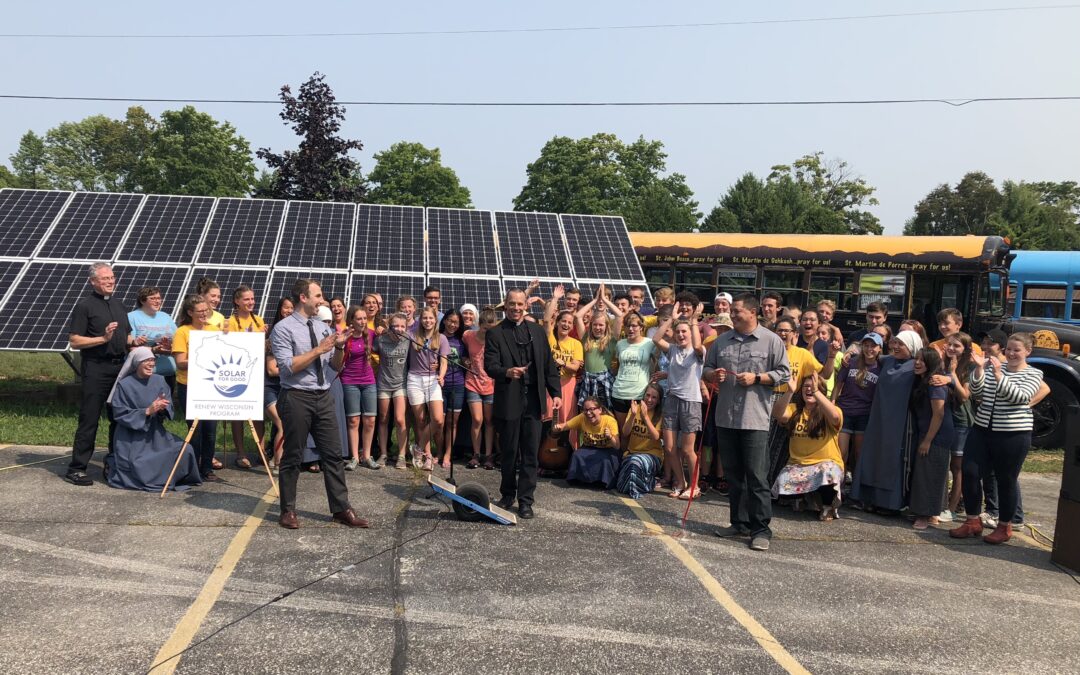
by Sam Dunaiski | Oct 29, 2020 | Community, Local Initiatives, Renewables, Solar, Solar for Good, Sustainable Business
RENEW Wisconsin’s Solar for Good program has awarded over $190,000 in cash grants and materials to Wisconsin nonprofits for installing on-site solar energy systems. Seventeen organizations will install 719 kilowatts of clean, renewable electricity leading to nearly $1.4 million in renewable energy investments in Wisconsin.
The following organizations have been offered Fall 2020 Solar for Good grants to install new solar electric systems:
All Saints Lutheran Church, house of worship, Fitchburg.
Boys and Girls Club of Dane County, after-school youth programming, Madison.
Community Clothes Closet, free clothing provider, Menasha.
Couleecap Inc, poverty alleviation, Westby.
Ezekiel Lutheran Church, house of worship, River Falls.
Friends of Sauk County Fairgrounds, historic preservation, Baraboo.
Grace Evangelical Free Church, house of worship, Viroqua.
Habitat for Humanity of Dane County, affordable housing provider, Madison.
Habitat for Humanity Restore, affordable housing support, Beaver Dam.
Just One More Ministry, food pantry, Glendale.
Milwaukee Habitat for Humanity Restore, affordable housing support, Greenfield.
Plymouth Congregational United Church of Christ, house of worship, Madison.
The BRICK Ministries, poverty alleviation and food pantry, Ashland.
Walnut Way Conservation Corps, community conservation organization, Milwaukee.
Yerkes Future Foundation, education and historic preservation, Williams Bay.
Two organizations have asked to remain anonymous at this time.
This round of Solar for Good grants features a diverse group of organizations from across Wisconsin. The Boys and Girls Club of Dane County will install over 250 panels at their Madison-based facility and plan to demonstrate the benefits of solar energy to the young people they serve. An 11-kilowatt array will be installed at the BRICK Ministries in Ashland with the help of donated solar panels from One Energy Renewables, a large-scale solar developer. And a 60-kilowatt array is planned at the famous Yerkes Observatory in Williams Bay, home of the world’s largest refracting telescope used for astronomical research.
“The grant and the installation of solar panels underscores the ongoing value of Yerkes Observatory as a place for scientific discovery and education,” stated Dianna Colman of Yerkes Future Foundation. “Students and visitors will experience firsthand the impact of solar power…even on a building dating back to 1897.”
In addition to the Couillard Solar Foundation, Solar for Good’s founding funder, this cycle of grants also received backing from the Array it Forward initiative at First Unitarian Society in Madison. The First Unitarian Society won a Solar for Good grant in 2018 and wanted to share the benefits they received from their solar array with other nonprofits across Wisconsin. Array it Forward is made possible through donations solicited from their congregation and the community.
“Solar for Good shares our values and priorities for stabilizing our climate and speeding our transition to renewable energy,” said Carol Phelps, a contributing donor to Array it Forward. “This will make life better for the children of the world…when people unite to tackle climate change, there is great hope for the future.”
The 17 nonprofit organizations are a part of Solar for Good’s 7th round of funding. Since its inception in 2017, Solar for Good has offered solar grants to 96 Wisconsin-based nonprofits.
When each of the solar projects are energized, these nonprofits will have added over 4 megawatts of clean, renewable energy to Wisconsin’s electric mix, enough to power approximately 900 homes. Solar for Good projects will represent a total of $9.2 million of private investments in Wisconsin renewable energy over the past three years.
About Solar for Good RENEW Wisconsin’s Solar for Good initiative fosters the expansion of solar power among mission-based nonprofits and houses of worship in Wisconsin. Through a generous partnership with Couillard Solar Foundation and Array it Forward, RENEW Wisconsin awards grants and solar panels to nonprofit organizations, helping them switch to clean, renewable, solar energy.
About RENEW Wisconsin RENEW Wisconsin is a nonprofit organization which promotes renewable energy in Wisconsin. We work on policies and programs that support solar power, wind power, biogas, local hydropower, geothermal energy, and electric vehicles. More information on RENEW’s website: www.renewwisconsin.org.

by Sam Dunaiski | Jun 19, 2020 | Local Initiatives, Solar, Solar for Good
RENEW Wisconsin’s Solar for Good program will issue over $150,000 worth of solar panels to Wisconsin nonprofits as part of their spring 2020 funding cycle. These grants will go to 10 organizations across the state that together will install 789 kilowatts of clean, renewable electricity. When completed, these solar projects will lead to nearly $1.8 million in renewable energy investments in Wisconsin.
The following organizations have been offered Spring 2020 Solar for Good grants to install new solar electric systems:
Aptiv Inc., provides support services for youth and adults with disabilities, La Crosse
Assumption Catholic Schools, pre-K to grade 12 private school, Wisconsin Rapids
Covenant Lutheran Church, house of worship, Stoughton
Dodge County Housing Authority, affordable housing provider, Juneau
Grace Congregational United Church of Christ, house of worship, Two Rivers
Green Bay Area Public School District, education, Green Bay
Four organizations have asked to remain anonymous at this time.
This round of Solar for Good grants features a diverse collection of awardees from across Wisconsin. The Green Bay Area Public School District will install a 14-kilowatt array on the Aldo Leopold Community School to educate their students and community about the benefits of solar electricity. A 55-kilowatt solar system will be installed in La Crosse at Aptiv Inc, which will allow them to fund more programs for adults with disabilities. And the Dodge County Housing Authority plans to install nearly 300 solar panels across 10 newly-constructed duplexes at the Oak Grove community in Horicon.
“Dodge County Housing Authority is thrilled to be installing solar panels on every unit at its new Oak Grove, Phase 2 affordable housing community,” said Donna Braun, Executive Director of Dodge County Housing Authority. “We decided to pursue solar panels at this new development because solar will allow our residents to see a significant reduction in their monthly electric bills. As all of the residents of Oak Grove, Phase 2 will be under 60% of the county median income, the electricity savings will make a big difference to these families.”
The 10 nonprofit organizations represent Solar for Good’s 6th funding cycle. This brings the collective impact of this program to 81 Wisconsin nonprofits installing 107 new solar arrays throughout the state. When the installations supported through this funding cycle are energized, Solar for Good will have added 4,030 kilowatts of clean, renewable power to Wisconsin’s electric mix, enough to power over 800 average-sized homes. In total, these solar projects represent more than $9 million of private investment in renewable energy capacity in Wisconsin.
About Solar for Good RENEW Wisconsin’s Solar for Good initiative fosters the expansion of solar power among mission-based nonprofits and houses of worship in Wisconsin. Through a generous partnership with Couillard Solar Foundation, RENEW Wisconsin awards solar panels to nonprofit organizations, helping them switch to clean, renewable, solar energy.
About RENEW Wisconsin RENEW Wisconsin is a nonprofit organization which promotes renewable energy in Wisconsin. We work on policies and programs that support solar power, wind power, biogas, local hydropower, geothermal energy, and electric vehicles. More information on RENEW’s website: www.renewwisconsin.org.
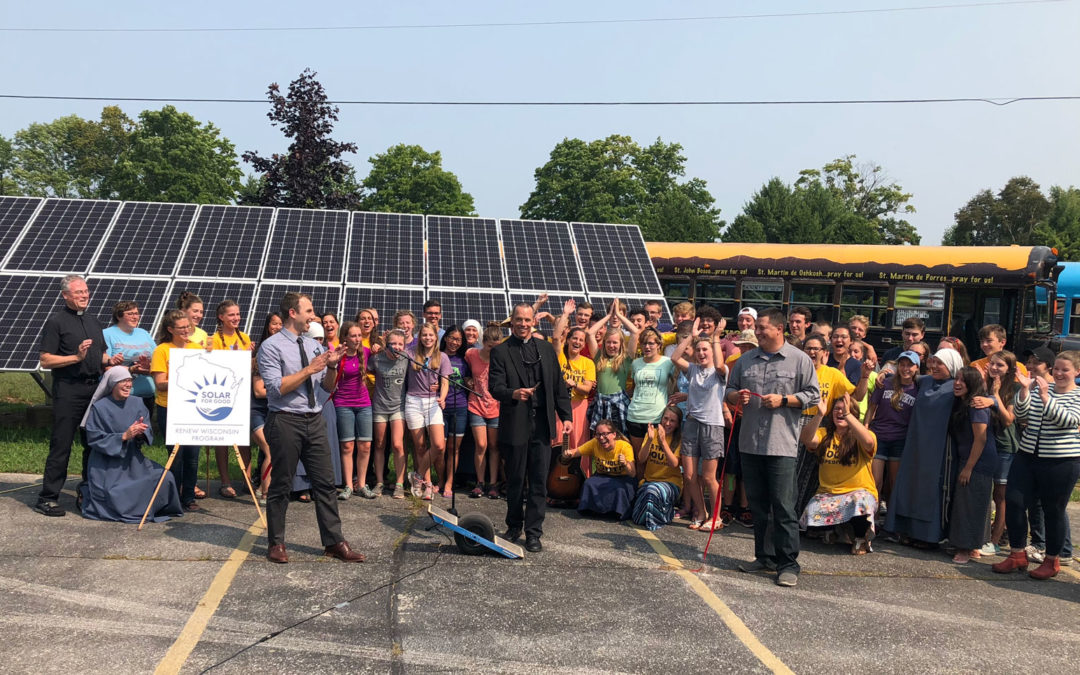
by Sam Dunaiski | Mar 2, 2020 | Local Initiatives, RENEW Wisconsin, Solar, Solar for Good
RENEW Wisconsin’s Solar for Good program has opened its sixth round of donations to help Wisconsin nonprofits install solar power. Grant applications are due Wednesday, May 1, 2020 at www.renewwisconsin.org/solarforgood.
Since 2017, the Solar for Good program has partnered with 75 Wisconsin nonprofit organizations to go solar. When completed, these organizations will have installed 91 solar arrays for a total of 3.24 megawatts of solar electricity, enough to power nearly 700 households.
Solar for Good is administered by RENEW Wisconsin, a statewide renewable energy nonprofit organization. Through a generous donation from the Couillard Solar Foundation, Solar for Good supplies winning nonprofits with solar panels to reduce the overall cost of installing solar power.
This is Solar for Good’s sixth award cycle, and the program has assisted nonprofits of all types and sizes across Wisconsin. The grantees include 25 houses of worship, 4 environmental conservation groups, 5 animal shelters, 17 schools and education centers, 2 veterans’ groups, and 20 housing providers.
To date, 45 organizations have completed installation of 51 solar arrays. Around $488,000 worth of grants have been dispersed from the Couillard Solar Foundation, and these grants have spurred over $4 million in solar investment across Wisconsin.
By accepting a Solar for Good award, nonprofits agree to promote the environmental and economic benefits of solar power to their communities. Winning organizations educate their members about solar power and are able to showcase their projects’ benefits.
Grant applications for Solar for Good must be received by Wednesday, May 1st 2020. Decisions and award announcements will be made on or before Wednesday, May 15th, 2020. RENEW Wisconsin plans on holding an additional round of Solar for Good funding in September of 2020.
How to apply for a solar grant
Organizations can learn more and apply at www.renewwisconsin.org/solarforgood. In order to be eligible, the organization must be a registered nonprofit organization located in Wisconsin, be in good financial standing, be ready to install solar, and agree to participate in educating community members about the benefits of solar energy. If approved for a solar panel award, all fundraising, design and installation for the solar project must be completed within 12 months.
Applications for the Spring 2020 Solar for Good cycle must be received by Wednesday, May 1st 2020. Decisions and award announcements will be made on or before Wednesday, May 15th, 2020.
For organizations looking at solar power for the first time, technical assistance grants are available to fund a solar site assessment (up to $250) or engineering review (up to $500) for their solar array. These applications will be reviewed separately from the applications for solar panel awards and will be allocated on a first-come, first-served basis.
About Solar for Good
RENEW Wisconsin’s Solar for Good initiative fosters the expansion of solar power among mission-based nonprofits in Wisconsin. Through a generous partnership with Couillard Solar Foundation, RENEW Wisconsin awards solar panels to nonprofit organizations, helping them switch to clean, renewable, solar energy. More information can be found at www.renewwisconsin.org/solarforgood/.
About RENEW Wisconsin
RENEW Wisconsin is a nonprofit organization which promotes renewable energy in Wisconsin. We work on policies and programs that support solar power, wind power, biogas, local hydropower, geothermal energy, and electric vehicles. More information on RENEW’s website: www.renewwisconsin.org.
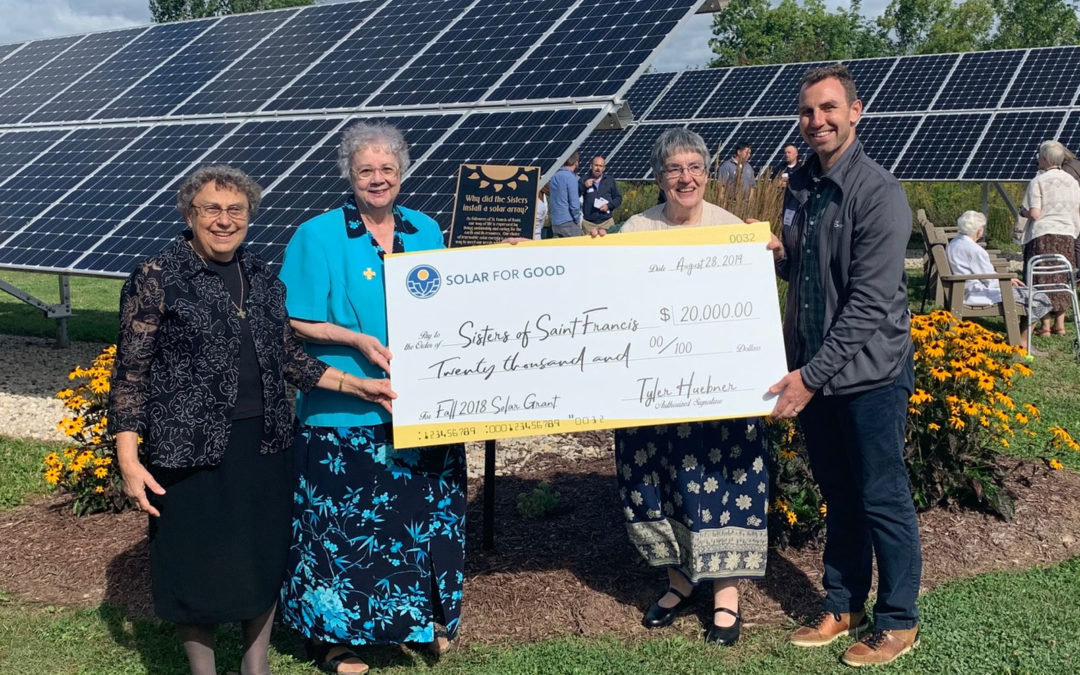
by Sam Dunaiski | Dec 16, 2019 | Community, Local Initiatives, Programs, RENEW Wisconsin, Solar, Solar for Good
RENEW Wisconsin’s Solar for Good program will issue nearly $140,000 worth of solar panels to Wisconsin nonprofits as part of their fall 2019 funding cycle. These grants will go to 13 organizations across the state that together will install nearly 600 kilowatts of clean, renewable electricity. When completed, these solar projects will lead to over $1.2 million of solar investment in Wisconsin.
The following organizations have been offered Solar for Good grants to install new solar electric systems:
CAP Services, poverty alleviation, Stevens Point
Camp Amnicon, outdoor retreat and spiritual worship, South Range
Menīkānaehkem, Native American educational organization, Gresham
Habitat for Humanity – La Crosse Area, affordable housing provider, La Crosse
Jackson County Animal Shelter, safe haven for stray animals, Black River Falls
Heartland Housing, affordable housing provider, Madison
First Unitarian Society of Milwaukee, house of worship, Milwaukee
Boys & Girls Club of Greater La Crosse, youth education, La Crosse
Bethel Lutheran Church, house of worship, Madison
Movin’ Out, alternative housing provider, Madison
Zwingli United Church of Christ, house of worship, Verona
Kathy’s House, alternative housing provider, Wauwatosa
One organization has asked to remain anonymous at this time.
This round of Solar for Good funding features a diverse group of awardees from across Wisconsin. The Boys and Girls Club of Greater La Crosse will use their solar installation to help educate members on renewable electricity and energy efficiency for their recently-renovated facility. Over 200 solar panels will be installed at Kathy’s House, a hospital guest-house in Wauwatosa. And the Indigenous-led organization Menīkānaehkem, will install solar to power several tiny homes being constructed on the Menominee Indian Reservation to house the community’s homeless population.
“We decided to go solar to reduce our energy bills and to focus more of our resources on programming,” said Guy Reiter of Menīkānaehkem. “We plan to use the array as a training center for community members interested in pursuing a career in solar. Thanks to the Solar for Good grant, we are moving closer to our goal of making the Menominee community energy-sovereign as a way to create jobs, restore hope, reduce carbon pollution, and mitigate climate change.”
This marks Solar for Good’s 5th funding cycle and the second-largest to date. Including the fall 2019 funding cycle, the program’s impact will total 74 Wisconsin nonprofits installing 88 new solar arrays throughout the state. The program will add 3.25 megawatts of clean, renewable power to Wisconsin’s electric mix, enough to power approximately 650 homes. In total, these 88 solar arrays will spur over $7 million in investments in renewable electricity.
About Solar for Good
RENEW Wisconsin’s Solar for Good initiative fosters the expansion of solar power among mission-based nonprofits and houses of worship in Wisconsin. Through a generous partnership with Couillard Solar Foundation, RENEW Wisconsin awards solar panels to nonprofit organizations, helping them switch to clean, renewable, solar energy.
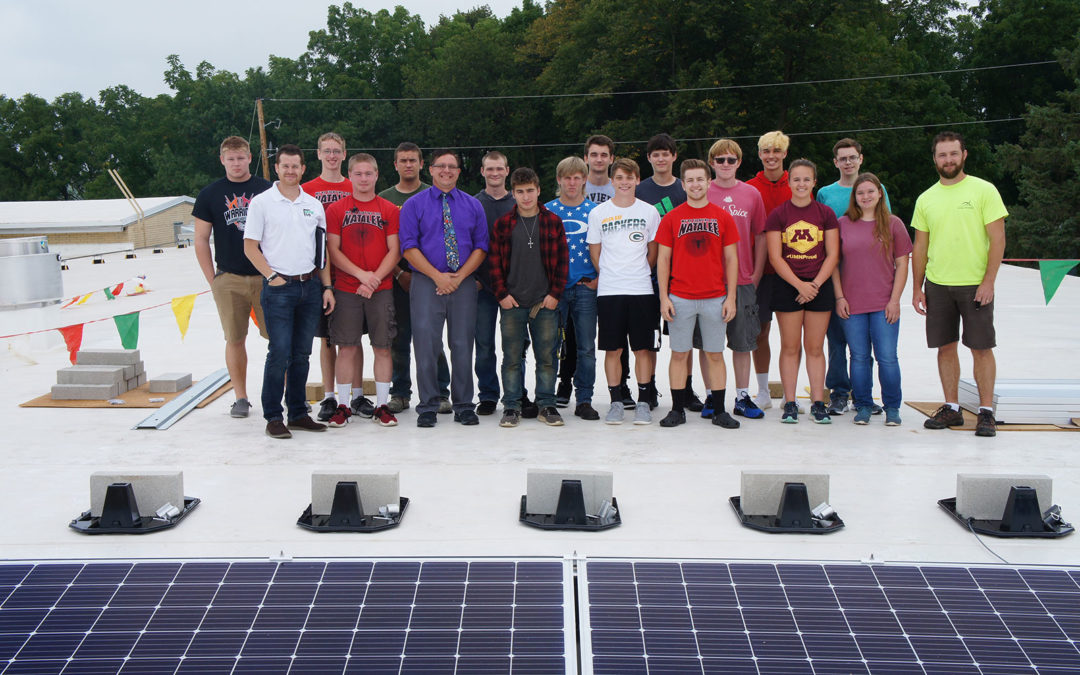
by Sam Dunaiski | Sep 26, 2019 | Community, Events, Programs, RENEW Wisconsin, Renewables, Solar, Solar for Good
Construction of Juda School District’s new solar array began on Tuesday, September 17th and Juda High School students got a first-hand look at the solar installation process. Ryan Harkins of Synergy Renewables, designed the 4-kilowatt solar array that will help the school offset its electricity consumption and reduce its utility bills.
Sixteen students, mostly seniors from Juda’s Calculus and Engineering classes participated in the installation process.
“Helping put solar panels on our school really shows what our Engineering class can accomplish,” said Juda student Tristan Geisking.
Harkins showed the students how to install the panels’ racking and connection devices, and the students also learned how solar energy is produced.
“Developing a solar project from the planning stages to the installation is an experience the students will remember for years to come,” said Harkins. “The students did a fantastic job.”
In 2012, the Juda School District set a goal of generating 10% of their electricity from renewable energy. The district had 36 solar panels installed in 2014 to offset its electric use. The new solar installation adds 12 more panels to the school’s rooftop and the two installations combined offset nearly 10% of the school’s electricity.
To help with costs, Juda received grants from RENEW Wisconsin’s Solar for Good program and the Public Service Commission’s Office of Energy Innovation. These grants helped fund the solar array, and a host of other energy efficiency measures at the school including building envelope improvements, HVAC optimization, and 100% LED lighting.
“Initially, the proposed payback to the school district would take 6 years. Now, thanks to the Energy Innovation Grant, the school is already realizing the savings,” stated Mario Millonzi, President of Upper 90 Energy and contractor on the project.
Juda is now saving over $30,000 per year in utility costs, and over $6,000 in yearly maintenance costs. The school, however, sees the cost-savings as only one part of the project’s benefits.
“At Juda, we issue the challenge to the students to make the school, the community, and the world better,” said Juda Math and Engineering Instructor, Scott Anderson. “This project accomplishes all three.”
Students at Juda were key to the success of the projects. In addition to helping with the installation, they helped write grants and worked with Upper 90 on the energy saving details.
“Creating students who are aware of their role as stewards of our world may be the single most important thing I teach,” added Anderson. “Once they get started, it’s great to see what they can accomplish.”






